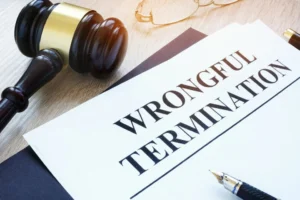
After a court awards a judgment, many creditors are eager to collect the money owed as quickly as possible. However, enforcement actions like wage garnishments, bank levies, and property liens can be time-consuming, costly, and sometimes contentious. This is where mediation and negotiation come into play as valuable tools in the judgment collection process.
Mediation and negotiation can provide a faster, less expensive, and often more amicable way to recover money owed under a judgment. Understanding when and how to use these approaches effectively can help creditors maximize their recovery and reduce the headaches of prolonged litigation.
What Is Mediation in Judgment Collection?
Mediation is a voluntary process where a neutral third party—the mediator—facilitates discussions between the creditor and debtor to help them reach a mutually acceptable agreement. The mediator does not decide the case but helps both sides communicate, clarify issues, and explore solutions.
In the context of judgment collection, mediation can:
- Help establish a payment plan the debtor can afford
- Avoid the adversarial nature of enforcement proceedings
- Resolve disputes about the amount owed or other terms
- Preserve a working relationship when appropriate
When Is Mediation Appropriate?
Mediation is often a good option when:
- The debtor disputes the judgment amount or terms
- The debtor lacks the ability to pay the full amount upfront
- Both parties want to avoid further court costs and delays
- The creditor seeks a structured payment plan rather than immediate full payment
- There is a history of cooperation or ongoing business between the parties
It’s important to note that mediation is voluntary and requires both parties to participate in good faith. If the debtor refuses mediation or is uncooperative, other enforcement methods may be necessary.
Benefits of Negotiation in Judgment Collection
Negotiation is the broader process of direct communication between creditor and debtor to reach an agreement on payment without a third party. It often overlaps with mediation but can happen informally through letters, calls, or meetings.
The benefits include:
- Flexibility to tailor payment plans or settlements to the debtor’s financial situation
- Potential for faster resolution without court involvement
- Reduced legal fees and costs for both parties
- Improved chances of recovering at least a portion of the debt
Negotiation can also help creditors avoid the risk and uncertainty of prolonged enforcement battles.
How to Negotiate Effectively
Successful negotiation requires preparation and strategy. Consider these tips:
- Know your bottom line: Understand the minimum amount you are willing to accept and payment terms that work for you.
- Understand the debtor’s financial situation: This helps in crafting realistic payment options.
- Communicate clearly and professionally: Keep negotiations focused on solutions, not blame.
- Document everything: Any agreements should be put in writing and signed by both parties.
- Consider involving legal counsel: Attorneys can negotiate on your behalf or review settlement offers to protect your interests.
Structured Payment Plans and Settlements
Often, mediation and negotiation result in a structured payment plan, where the debtor agrees to pay the judgment in installments over time. Payment plans can be formalized through a court order or a private agreement.
Alternatively, parties might agree to a settlement—a lump sum payment less than the full judgment amount—if the creditor prefers immediate payment and the debtor cannot pay in full.
Both options help turn a difficult collection process into a manageable arrangement that benefits both sides.
When Enforcement Is Still Necessary
While mediation and negotiation offer many advantages, there are times when enforcement actions remain necessary, such as:
- Debtors who refuse to cooperate or negotiate
- Situations where debtors have hidden assets or are judgment-proof
- When the creditor wants to send a strong message or deter future defaults
- Cases requiring formal court intervention to protect rights
In these instances, a judgment collection attorney can guide enforcement efforts while still exploring alternative resolutions.
How a Judgment Collection Attorney Can Help with Mediation and Negotiation
An experienced attorney can:
- Assess whether mediation or negotiation is appropriate in your case
- Represent your interests during mediation sessions or negotiations
- Draft payment plans, settlement agreements, and enforceable contracts
- Provide advice on when to shift from negotiation to enforcement
- Help maintain professionalism and focus throughout the process
Legal expertise can increase the chances of reaching a favorable resolution while protecting your rights.
Final Thoughts
Mediation and negotiation are powerful tools in the judgment collection process, offering a less adversarial and often more effective path to recovery. While not appropriate for every situation, exploring these options can save time, money, and stress for both creditors and debtors.
If you have a judgment but want to avoid lengthy enforcement battles, consider consulting with a judgment collection attorney to evaluate mediation and negotiation strategies tailored to your case. We recommend Judgement Collection Attorney.






